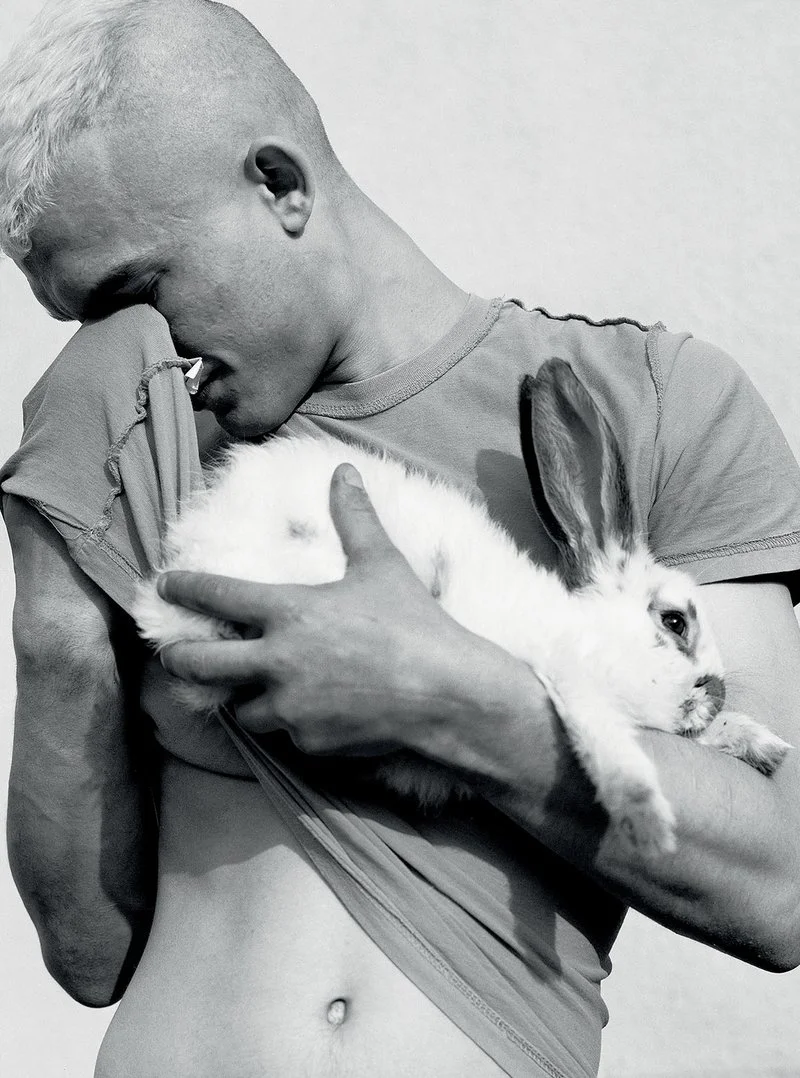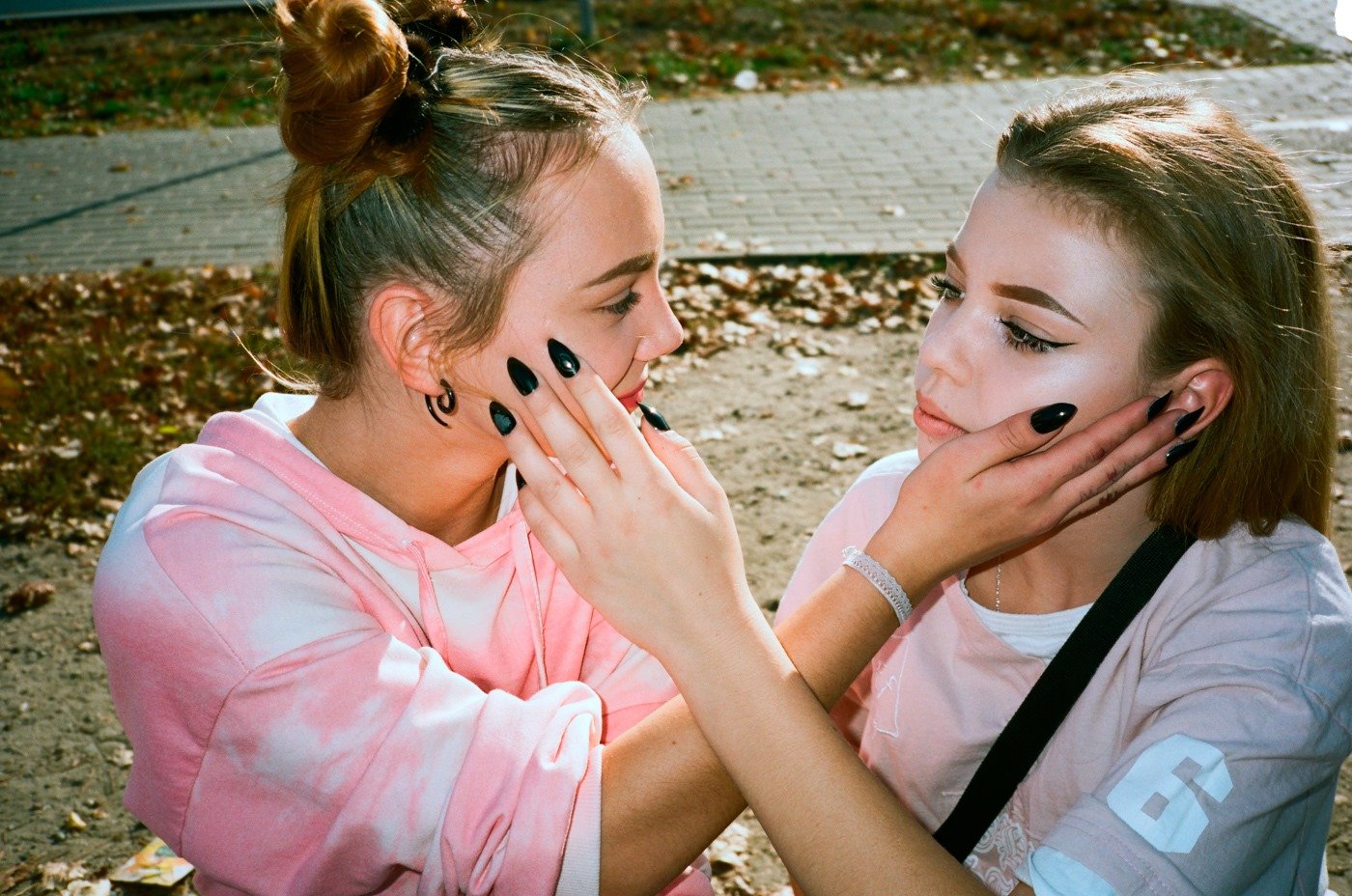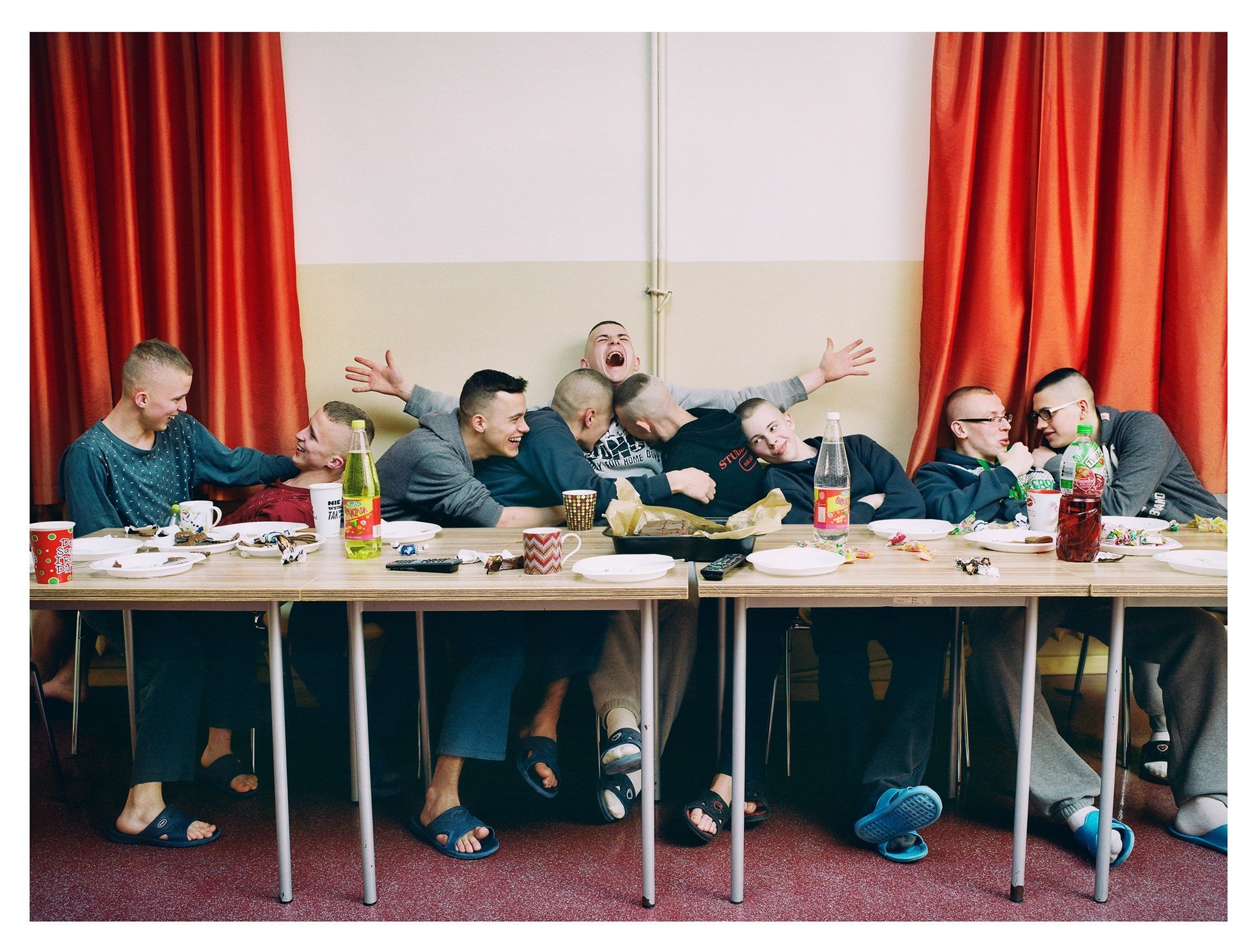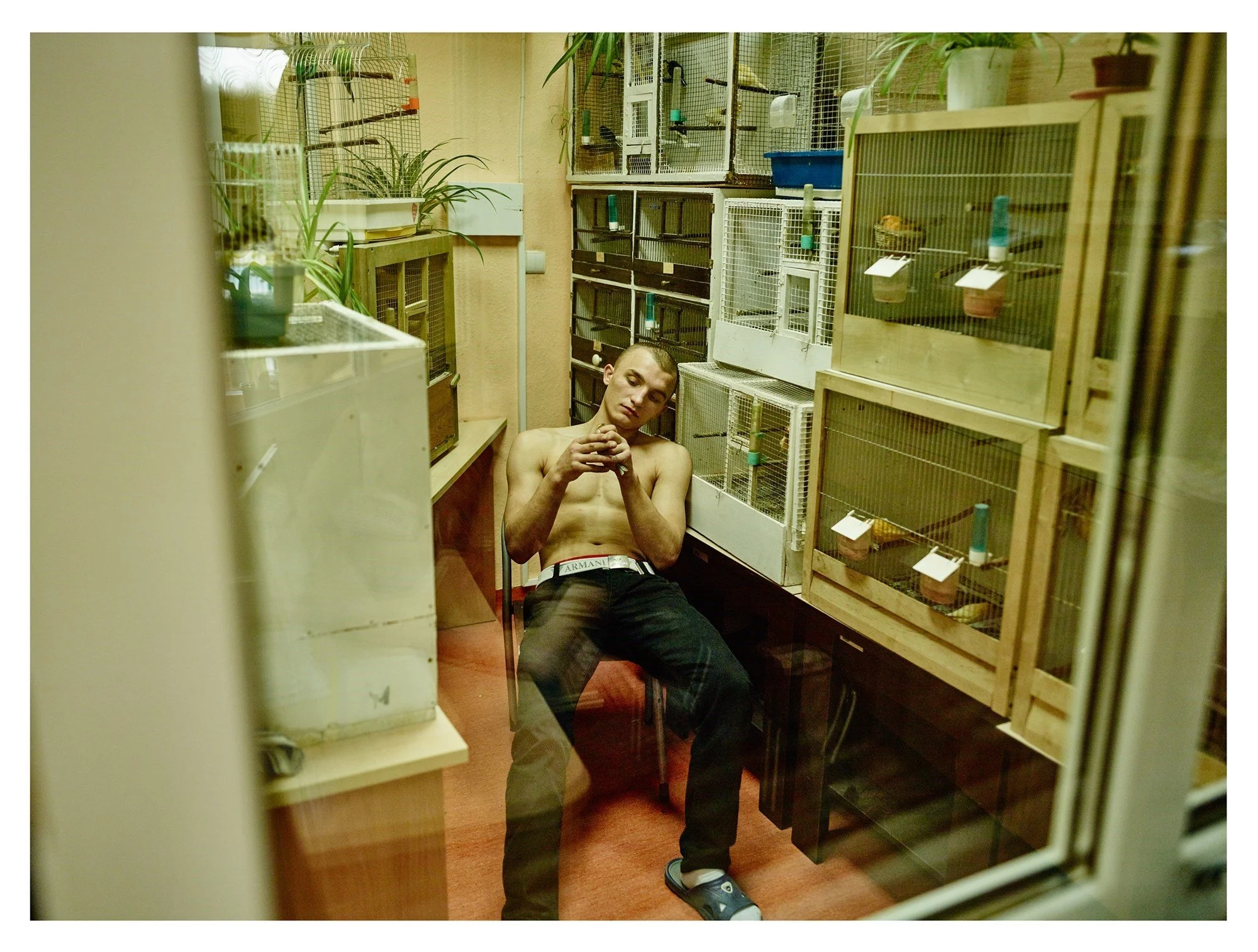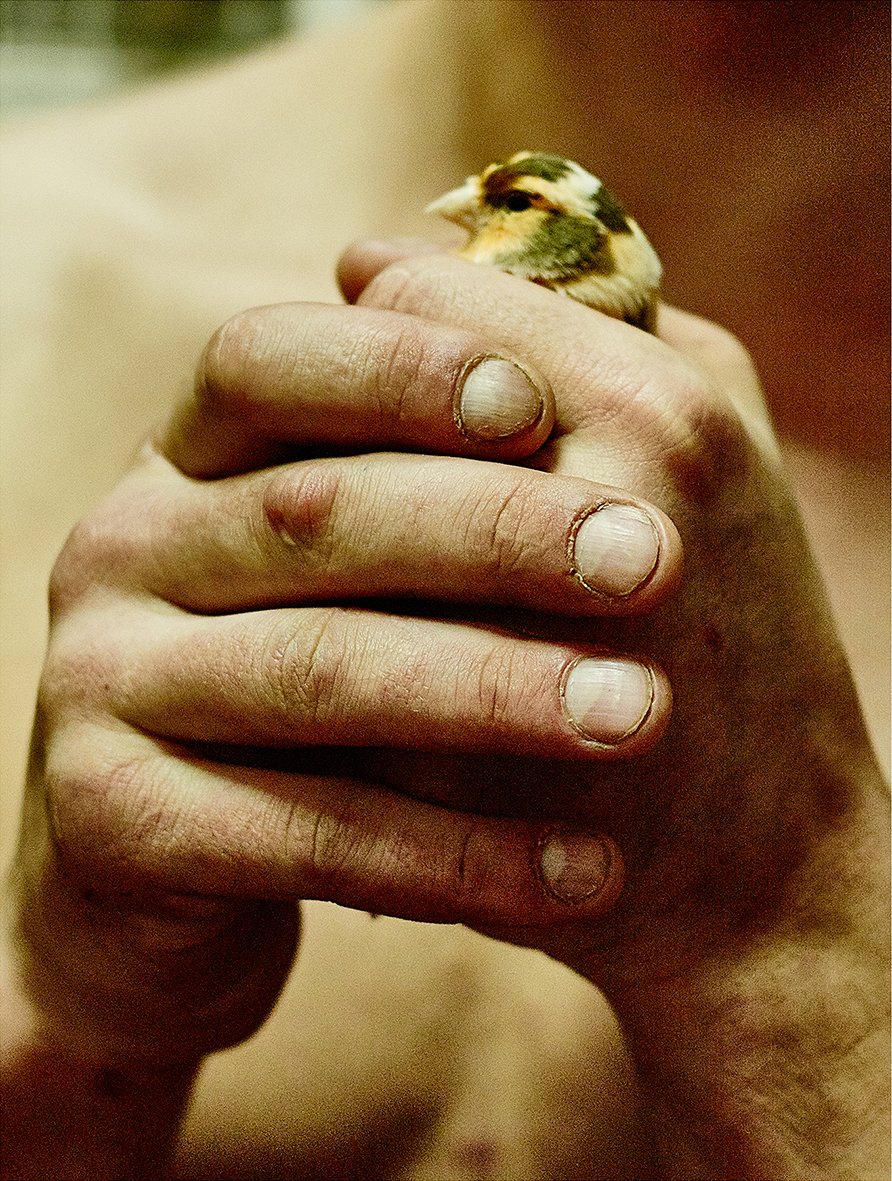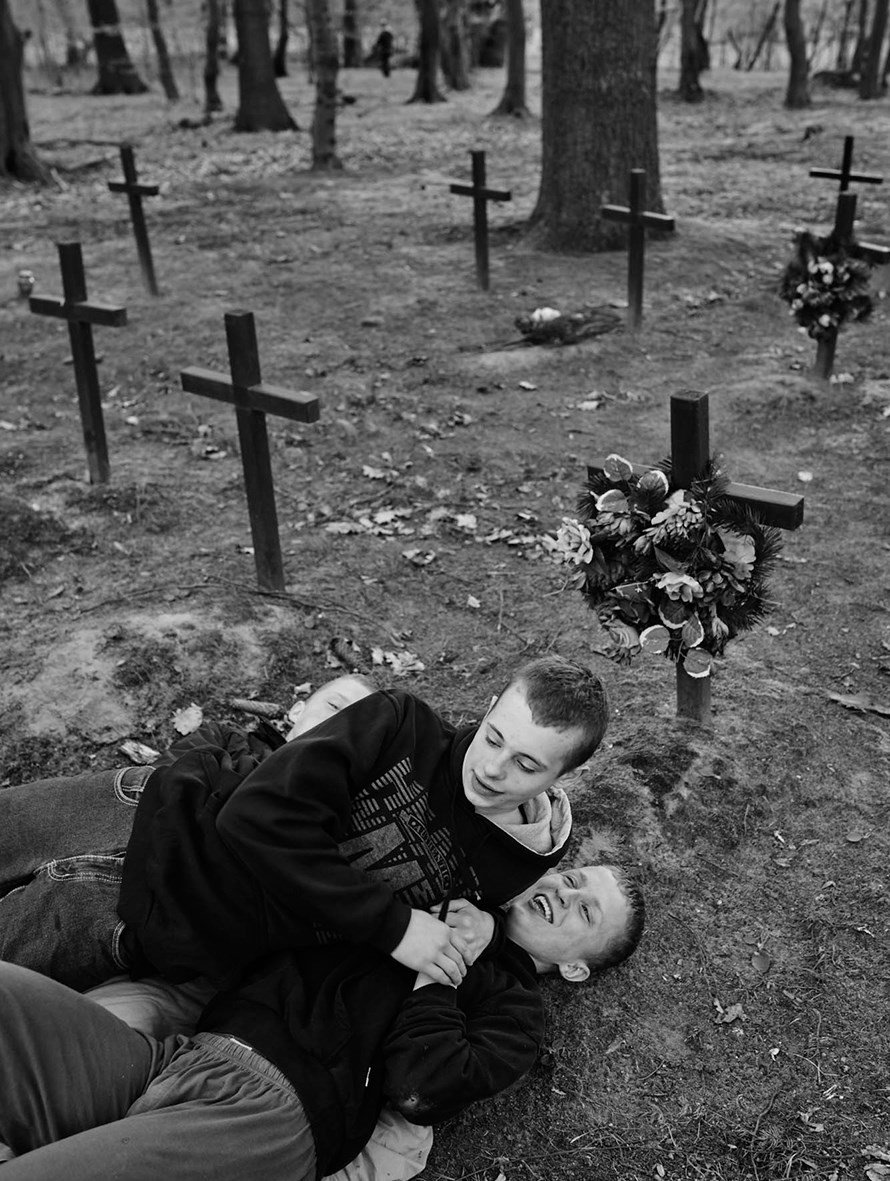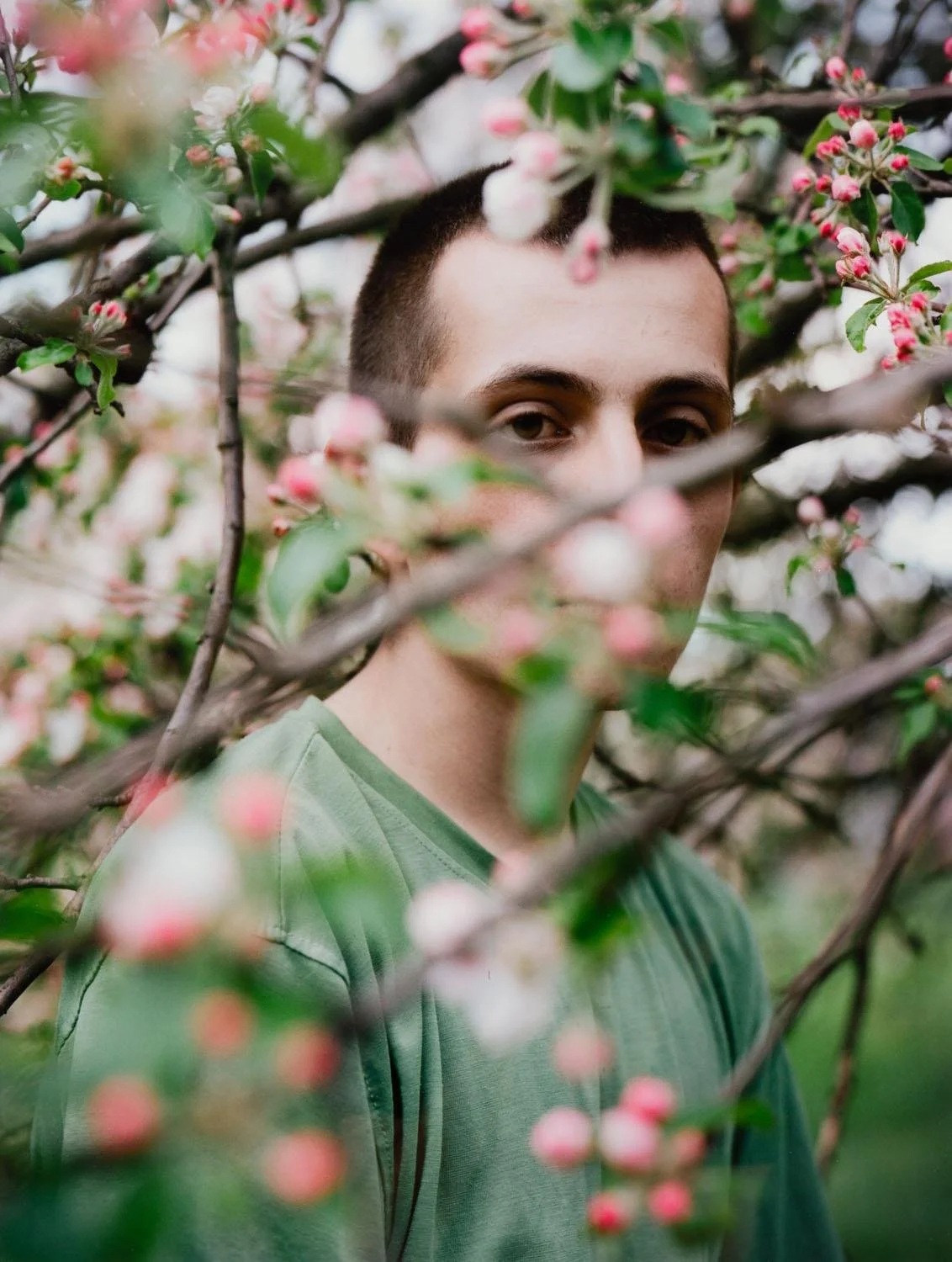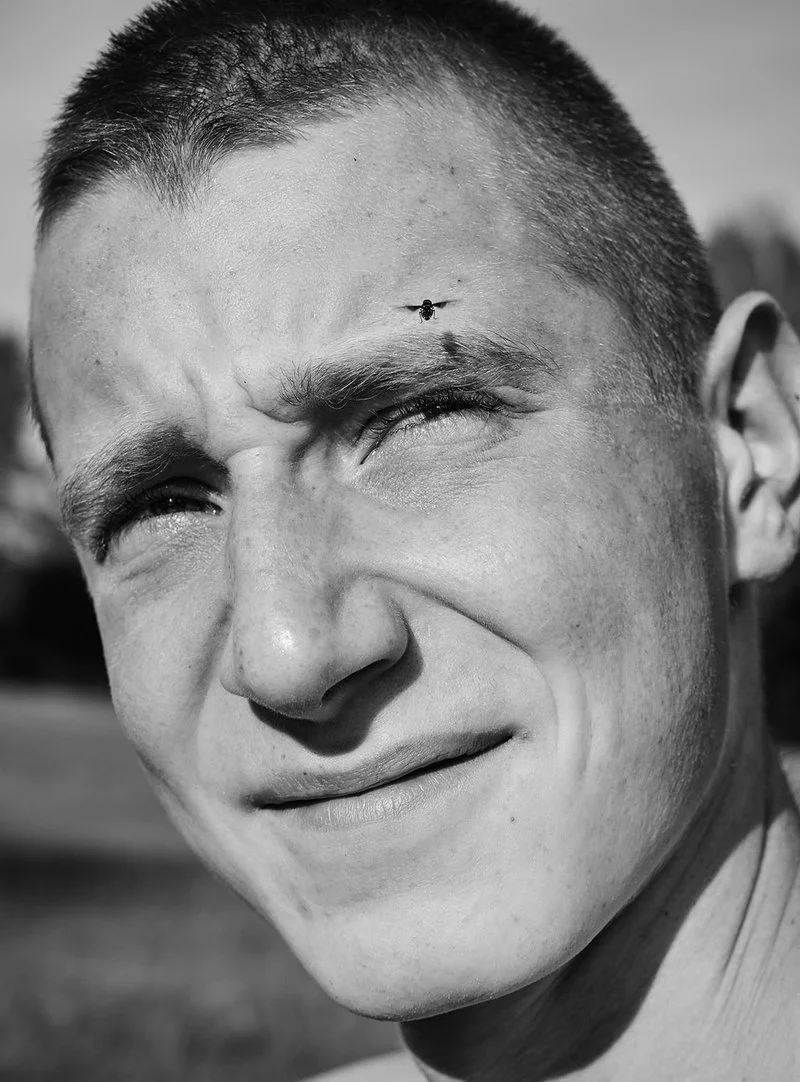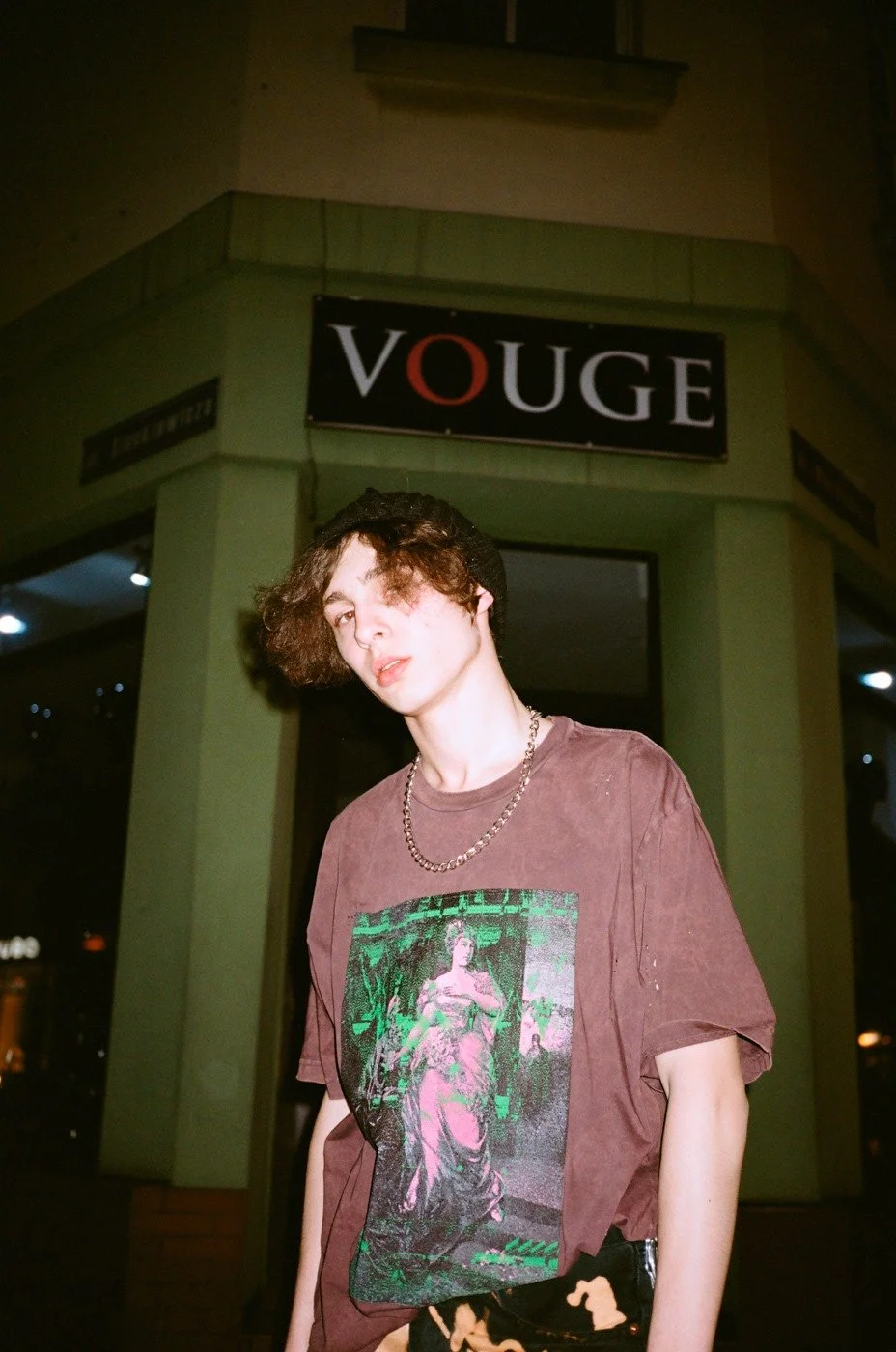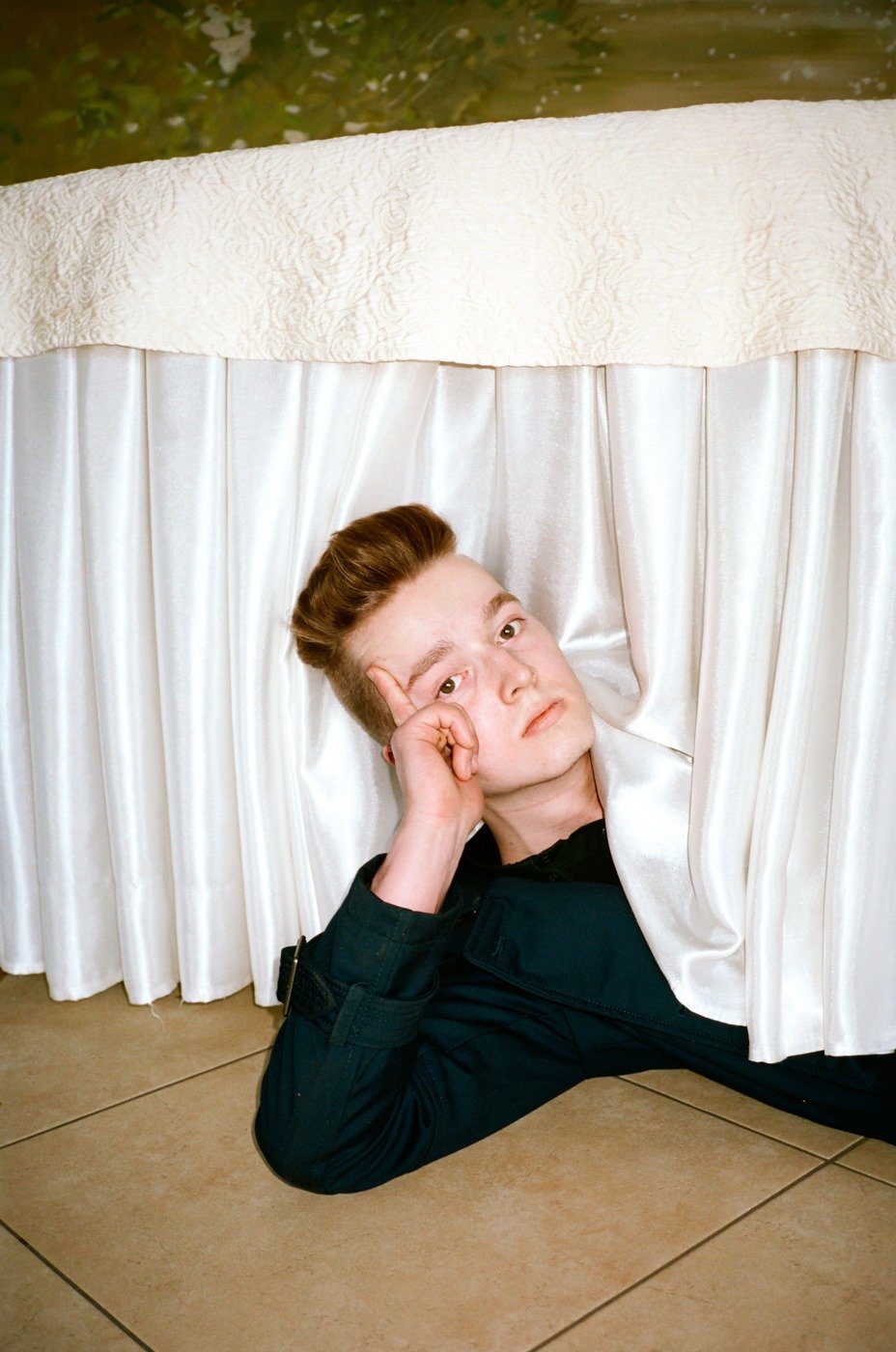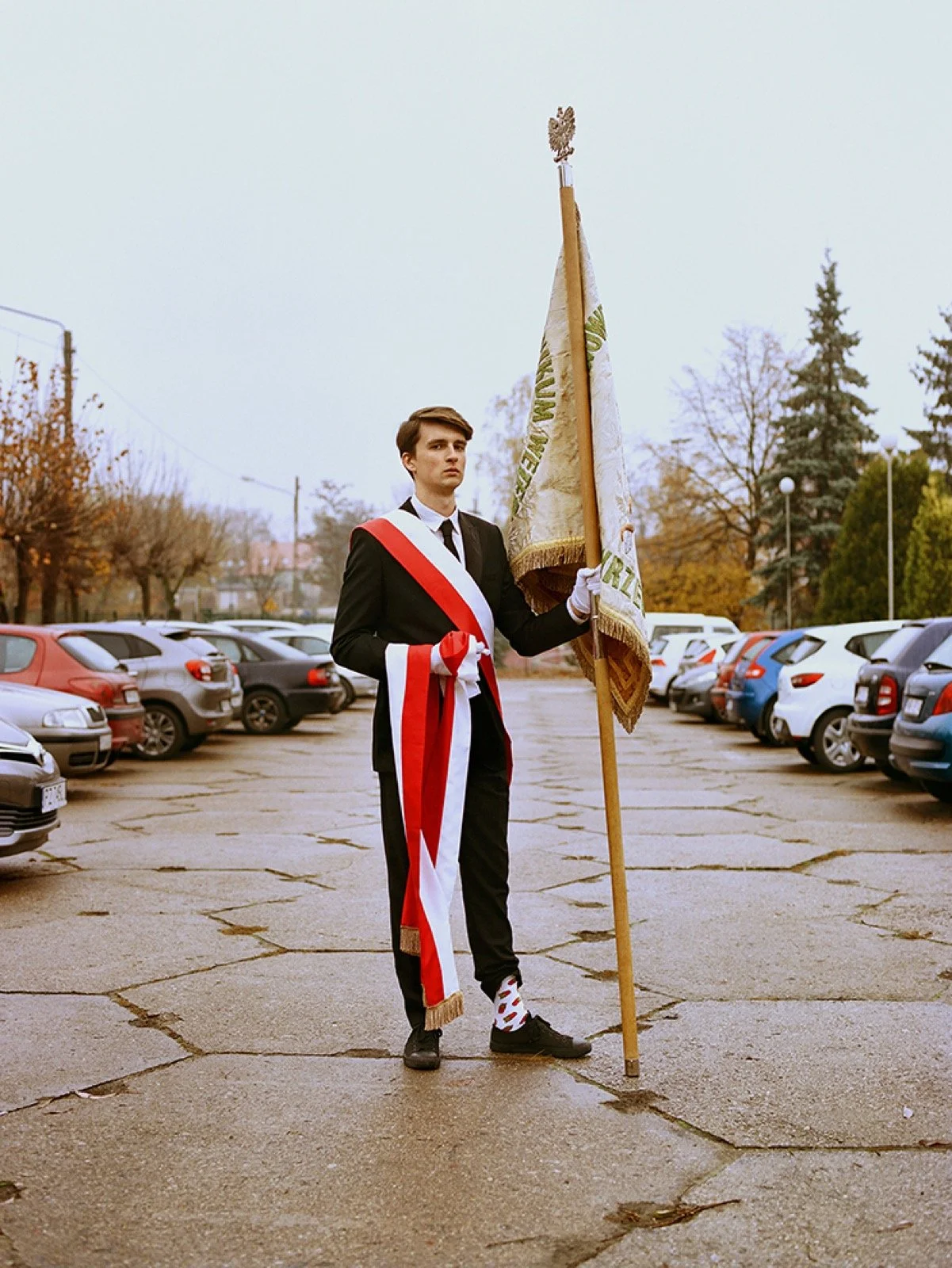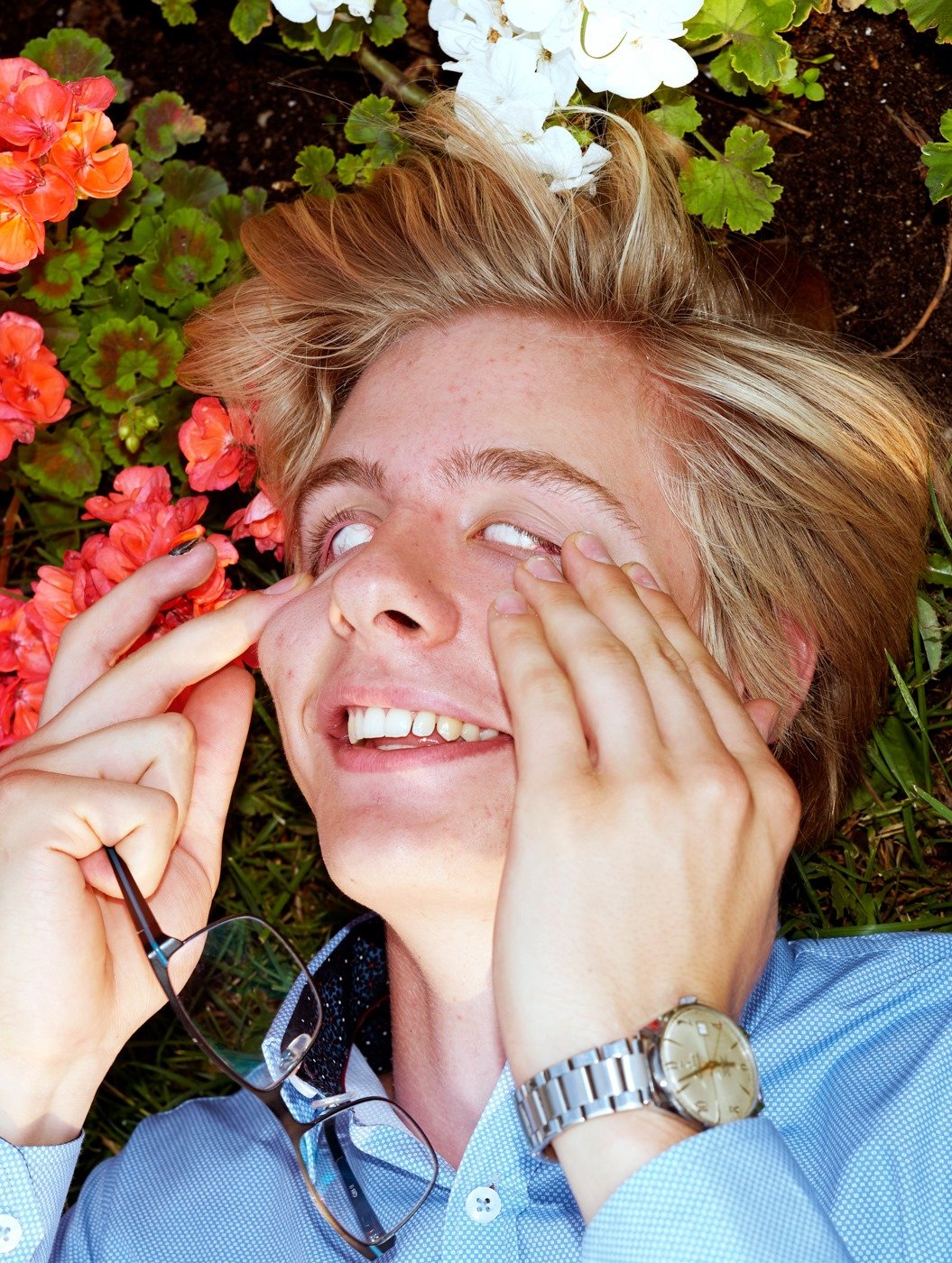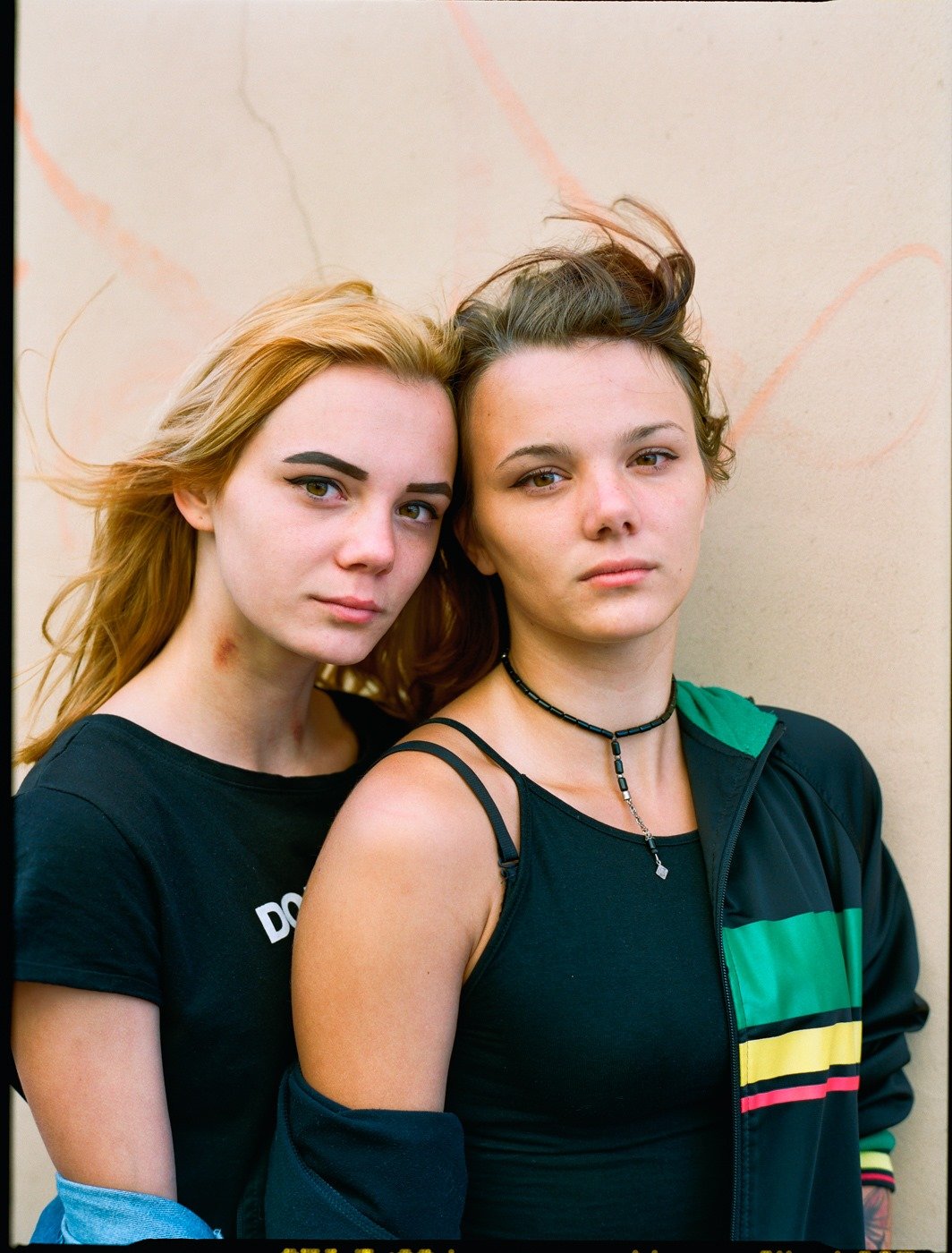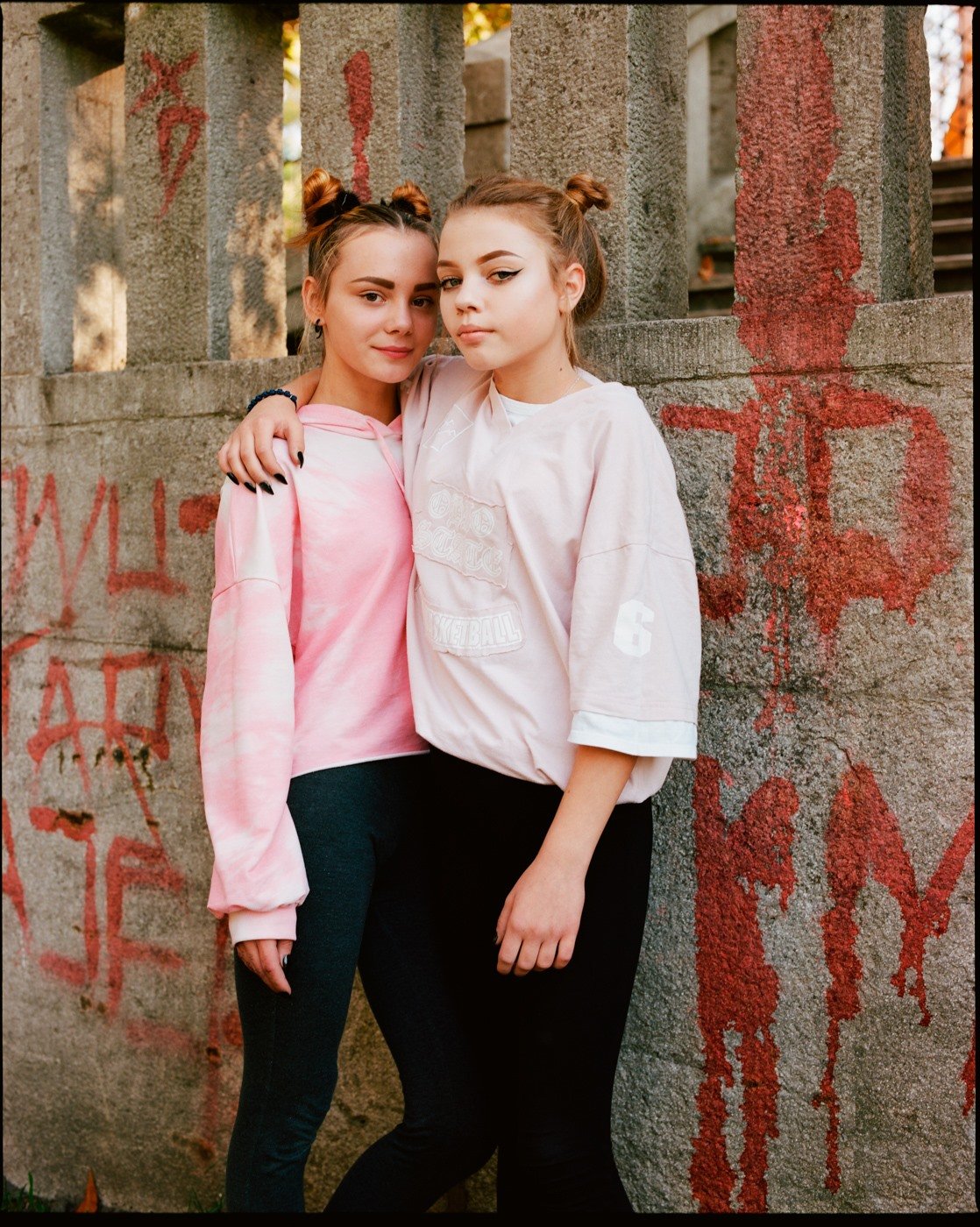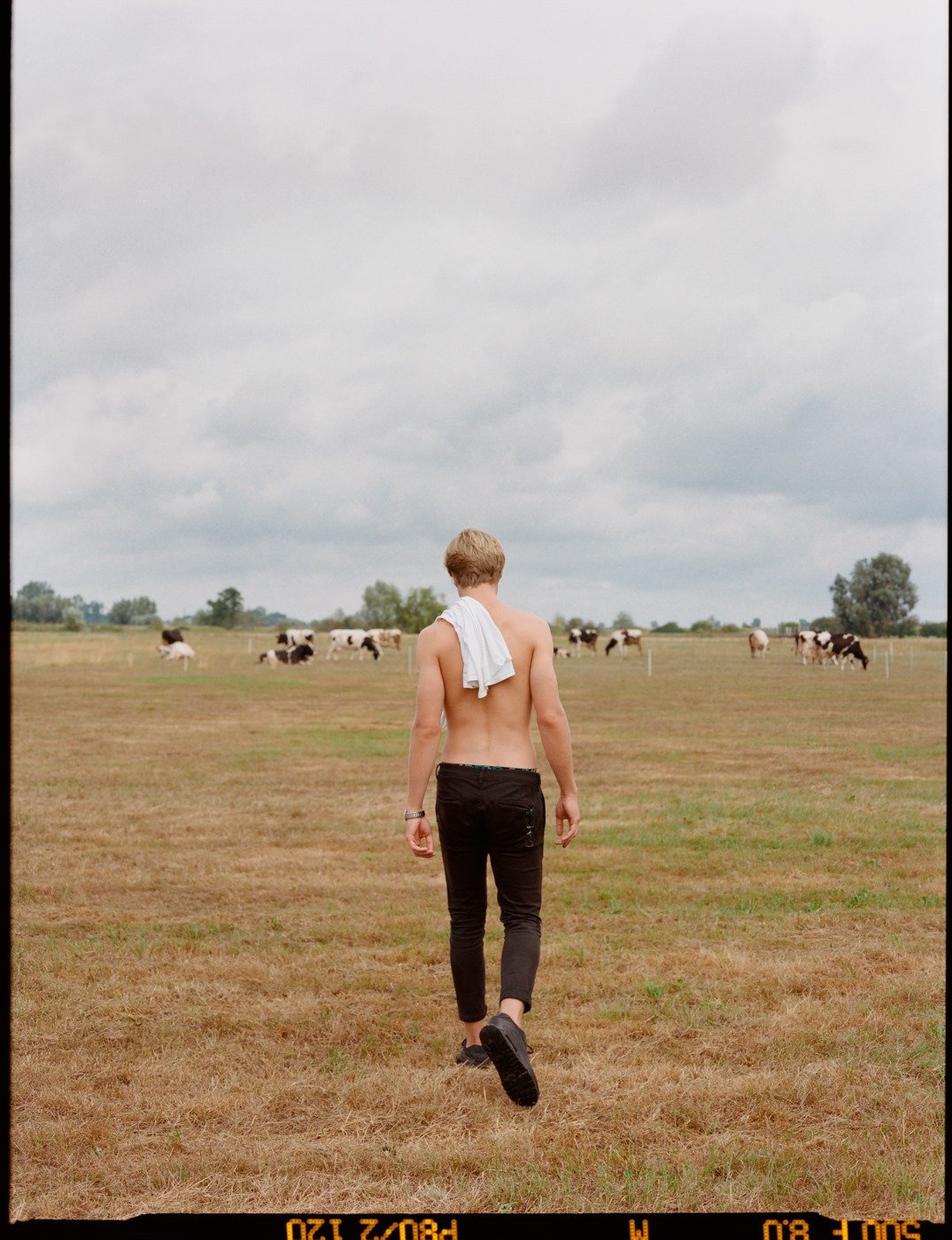beauty and youth through her own lens
Zuza Krajewska is hyper-energetic, madly creative, and unapologetically professional, standing out as one of Poland’s most respected photographers specialising in portraiture. Her portfolio includes a range of remarkable commercial and personal projects. She captures a diverse array of subjects, from top models, politicians and first ladies to juvenile offenders and small-town youth.
Krajewska’s images have a lasting impact, remaining in your mind long after you’ve seen them. Pulsating with emotions and energy, they resonate with viewers, prompting discussion rather than presenting a finished statement. At times, her work challenges conventions, shocks, on another it evokes a sweet tear or prompts a burst of laughter.
With a visual language as diverse as her subjects, Krajewska blends elements of kitsch and baroque with simple and raw documentary-style photography. Regardless of the approach, the end result is undeniably beautiful. However, it’s not the conventional beauty she channels. Her photography encourages profound self-reflection on the norms, boundaries, and constructs that define our society.
"Królik” (Rabbit) from IMAGO series; courtesy of Zuza Krajewska
Born in Gdansk, Krajewska has been curious and observant since childhood. Before she took her first photographs she would draw portraits of people she saw. As we talk about early inspiration she shares: “I was introduced to figures like Helmut Newton, Susan Meiselas, Grotowski, Witkacy very early on. There was surrealism, Greek mythology… This eclectic mix, absorbed between the ages of like 6 and 14, laid the foundation for my future aesthetic sensibilities.”
Now a mother of two, Krajewska underlines the impact of childhood experiences. "Our formative years are so crucial," she reflects. "The things we consume as children truly shape who we become as adults. I can see these early influences persistently echoing in my work today, like a familiar tape on a constant loop.”
Balancing her grown-up, responsible mother side with her hyperactivity due to ADHD and her untamed inner-child’s brain, Krajewska shares with a laugh: "I feel like I never grew up. I also tend to work best with young people who are often in their early twenties." She admits that her playlists are more akin to those of millennials or Gen Z rather than a boomer. ”I put on Asap Rocky to the shock of friends my age. They must often think I'm crazy, and they don’t even know what else I listen to!”.
"Powinno być dobrze. It Should Be Ok", Kolekcja Wrzesińska 2018; courtesy of Zuza Krajewska
Few photographers capture youth like Zuza Krajewska does. The topic of youth, being fashion’s long-standing obsession, is often romanticised in fashion imagery. However, Krajewska approaches this subject with depth and sensitivity. Her images are not just ‘about’ youth, but rather made ‘with’ them. Easily connecting and empathizing with young generations, she gives youth a voice and agency through her art.
Her work evokes emotions, opens dialogues and sparks deeper reflection. Krajewska however doesn't see herself as a world-changer. "Can art save the world? I'm convinced it cannot. Often, just by engaging with art, a person feels relief. And in these times we live in, where relief is so rare... we've become overwhelmed by pressure, speed, and the relentless pursuit of money. This constant stress and confusion, coupled with the various crises we face today, including the faith crisis, leaves people yearning for metaphysical peace. Art can sometimes provide that. It can offer a unique experience that transcends everyday reality, transporting us to a different space and opening our minds to new possibilities. In this sense, the impact is more spiritual than material.”
„Urodziny wychowawcy“ (Tutor’s birthday) from IMAGO series; courtesy of Zuza Krajewska
One of Krajewska’s most outstanding personal projects is “Imago,” realised in a juvenile reformatory institution in Studzieniec, Poland, putting a spotlight on teenage offenders. The title, "Imago" is a biological term referring to the final stage of an insect's metamorphosis - when the transformation is complete, yet it hasn’t reached full maturity. This poetically mirrors the situation of the teenage boys in the institution - on the verge of adulthood but still clinging to remnants of childhood. They seek a second chance to mend their freshly formed wings.
While ‘Imago’ may not have altered the boys' realities or provided them with a clear roadmap for the future, it offered something more invaluable: genuine attention. The photographs serve as honest reflection, portraying the boys with their flaws, burdens, and shattered dreams. Through this project, Krajewska explores the etymology of evil, searching for root causes of their actions. “I came to Studzieniec because I wanted to find those “bad” kids, I wanted to know where the bad comes from, where it begins. I found one, maybe two, with that wild look in their eyes, that gaze that was meant to terrify you. The rest, the other 27 boys, were children who had inherited this “badness” from their parents. It was all they ever got from them.”
Imago is not an outsider's observation. Krajewska looks beyond stereotypes, building genuine links with the boys. The resulting images radiate a sense of intimacy, friendship. The group shots even have a touch of the spiritual. Nothing is staged. Krajewska compares the process to hunting for genuine, fleeting moments and showing the truth, just as it unfolded in her frame.
When working on the project, she had also recently become a mother, which made her visits to Studzieniec even more emotional. Breaking down the barriers between herself and the boys took time. The project involved a year of visits, difficult conversations, and at times, simply observing. "There were days when I would just sit and watch them ride horses all day”.
“For many of the kids who come to Studzieniec, it is the first time in their lives when no one shouts or hits them, when they experience a rare moment of peace and quiet. For many it is the first time in their lives that they feel needed and wanted, safe from harm. The first time they understand that their lives are worth something.” reflects Krajewska.
A selection of works from "Imago," was presented at international exhibitions and featured in numerous magazines. The boys who participated in the project were also fairly compensated for their contribution, aiming to provide them with a form of financial capital for their first steps outside the reformatory.
"Powinno być dobrze. It Should Be Ok", Kolekcja Wrzesińska 2018; courtesy of Zuza Krajewska
Another project, "It Should Be OK," arose from a residency program in Września in 2018. The annual Kolekcja Września programme invites outstanding photographers to explore themes of the town’s life. This place holds a special significance in Polish history, marked by the "Września children's strike" – a protest against Germanisation in schools in the early 20th century. But beyond this historical record, Września is a small Polish town like any other.
Krajewska sought to understand the lives of a generation born after the year 2000. Through extensive interviews, she captured their hopes, anxieties, and desires for a more tolerant, diverse, and dynamic Poland. “Regardless of the background, wealth status, faith, most of these kids want a tolerant, more open, interesting and dynamic Poland. Poland more European. I really came to like these kids. I feel they have potential and we shouldn’t waste that. We - as adults, teachers, parents, employers and politicians - should listen to what they have to say”.
Krajewska dedicated this project to “those who cannot stand Poland’s division into two contrasting colours” and indeed, it explores the concept of Wrzesnia’s youth from a very inclusive lens, celebrating their identities and viewpoints in their full spectrum. Sexuality, religion, economy, and political concerns all come into play. These are not just fashion’s favourite pretty faces but depictions of whole individuals – living, thinking and loving. Each image feels like a fragment of life, a potential scene ready to unfold into a larger story or a film. The photographs pulsate with youthful energy, dreams, hopes, and ideals.
Similarly to ‘Imago’, Krajewska’s deep empathy for young people shines through in this project. Her natural ability to connect builds a unique intimacy in her work. Subjects appear at ease, as if the shoot was simply a friendly hangout or a quick glance in the mirror. The level of trust built between her and each person portrayed is impressive. ”Photography is such an intimate profession that without trust, you simply lose. Because, think about it, I approach people armed with a camera” she explains with a laugh “It’s an attack mode, even if I have the smallest camera. Just aiming it at someone, is like taking a shot!”
Photographing people from all walks of life in Poland, has allowed her to formulate quite a wide, democratic view on Poles as a nation. When asked what she admires most about them, she shares her thoughts: “I like a lot about us. I think we possess remarkable strength and resilience. We're also quick learners, adapting to change really fast. Perhaps most fascinating is our rich cultural diversity, a beautiful blend of influences from east, north, west, south…It's a national strength, we should celebrate it much more. We are also curious, with a cheerful outlook and a strong dose of self-irony. And that dark, mean sense of humor that I really like.”
With her brain constantly buzzing with ideas, there's never enough time in the day for Krajewska. Commercial work consumes most of her hours. While she pours her heart into both commerce and art, she yearns to eventually focus fully on the latter. “In an ideal scenario, I would focus fully on personal projects. Traveling the world and Poland, simply photographing people. Once my children are grown, financially independent and venture off on their own, I might pursue that, like Zofia Rydet! At this moment though the responsibility for two young humans is a major stress and simply necessitates a compromise. I’m sure though that the best is yet to come.”
WORDS BY PAULINA CZAJOR
ALL IMAGES COURTESY OF ZUZA KRAJEWSKA
